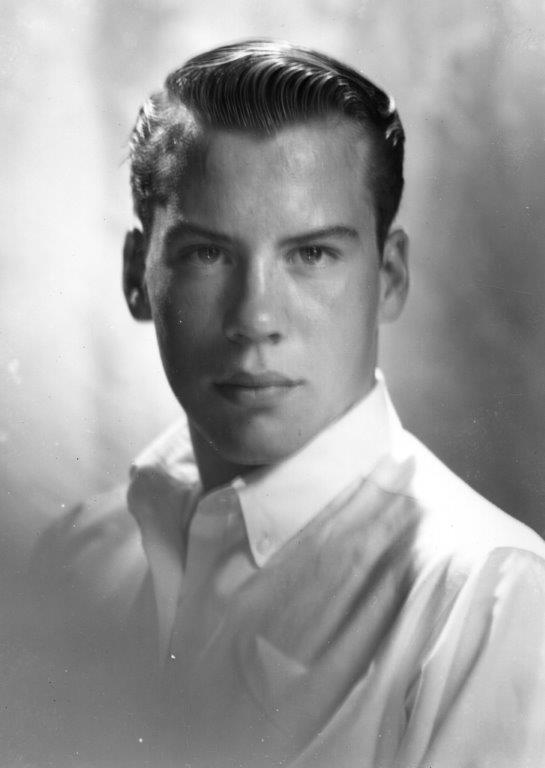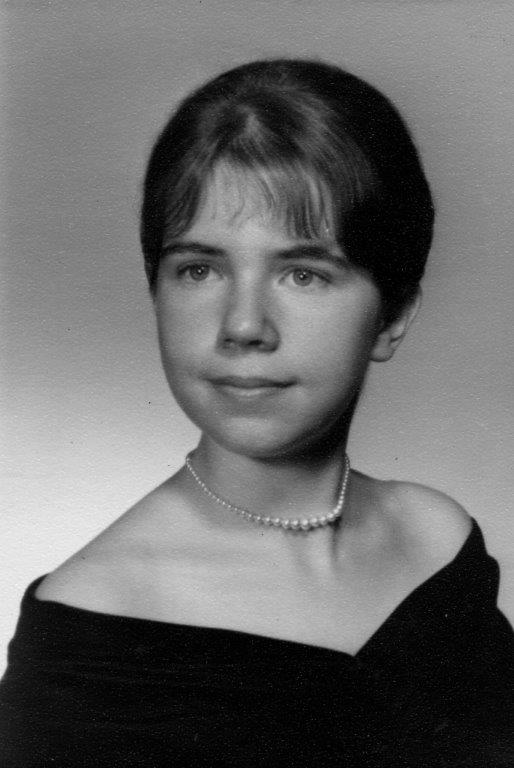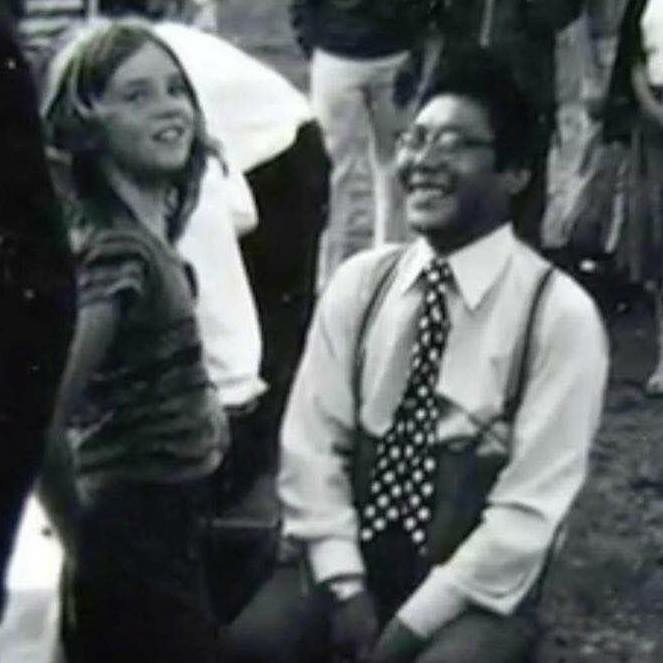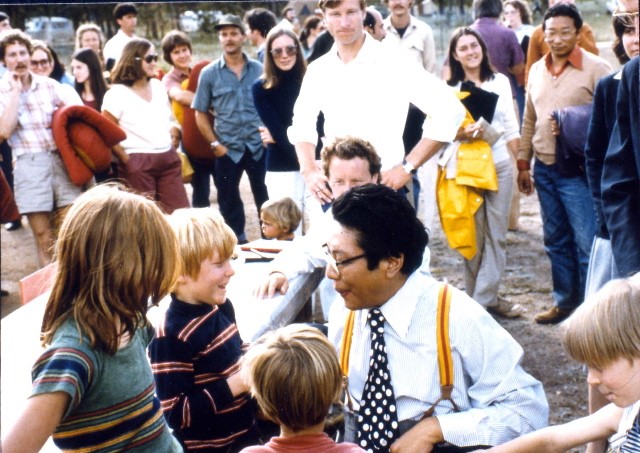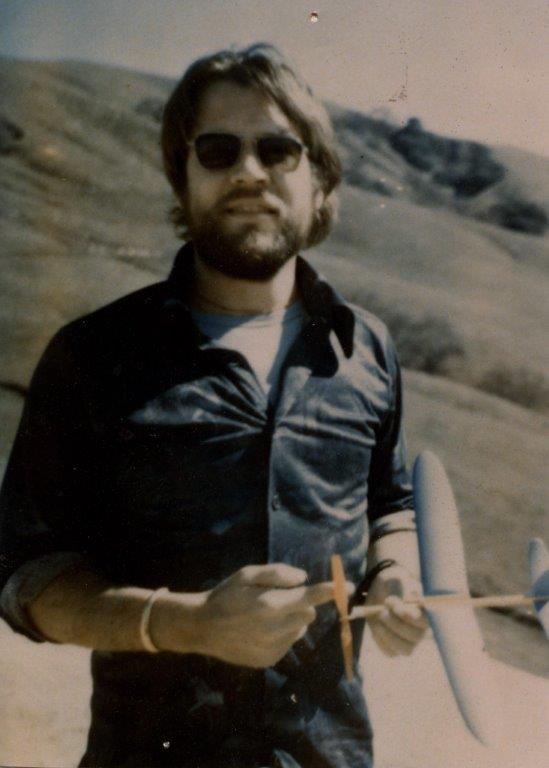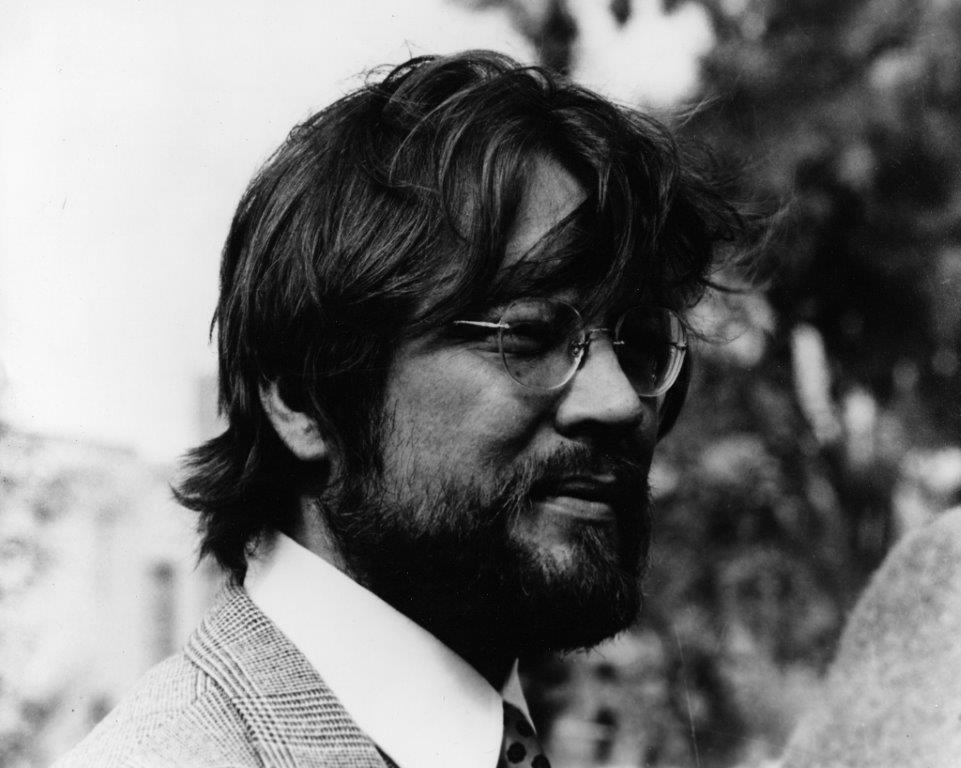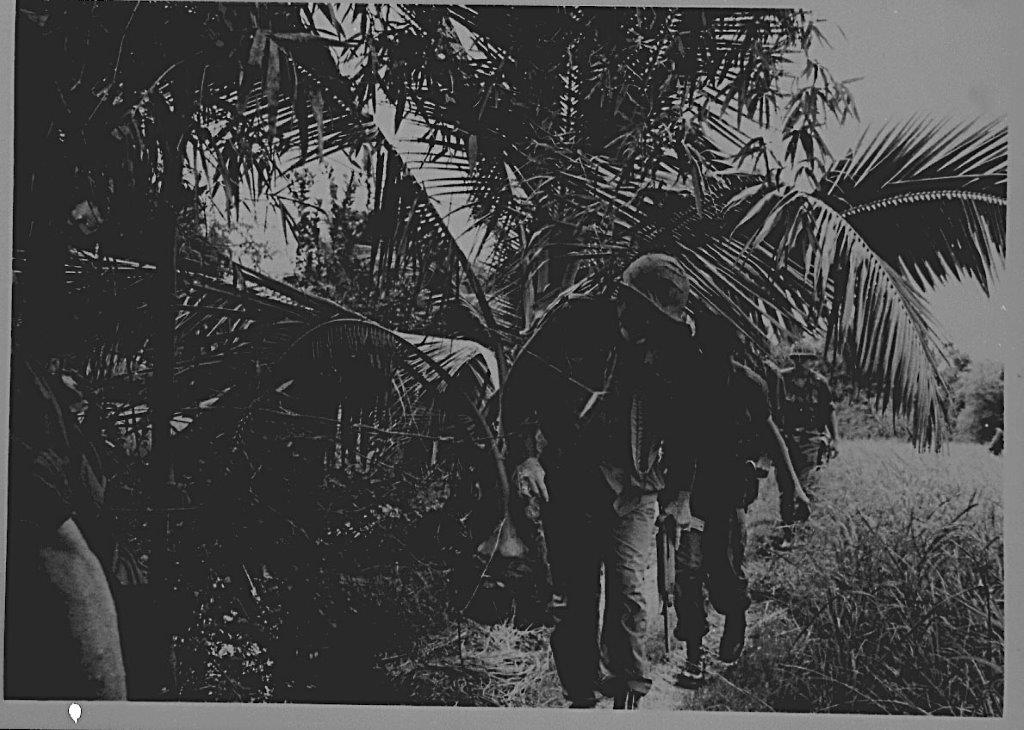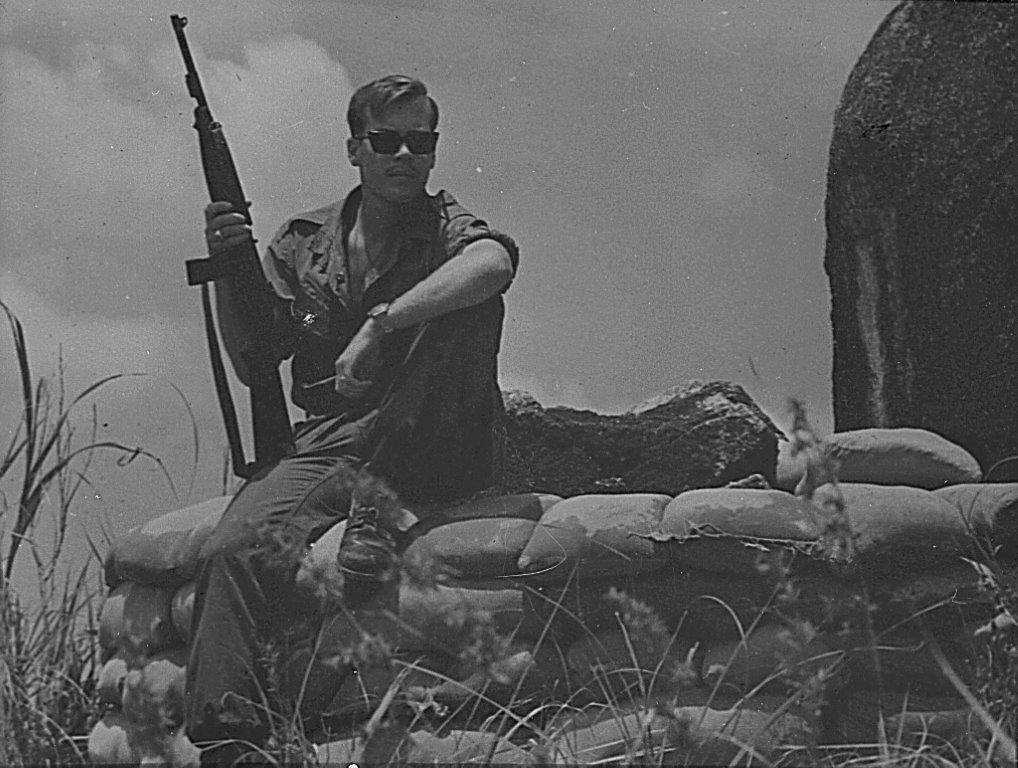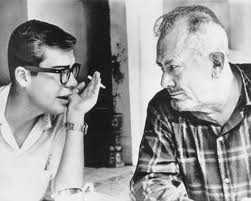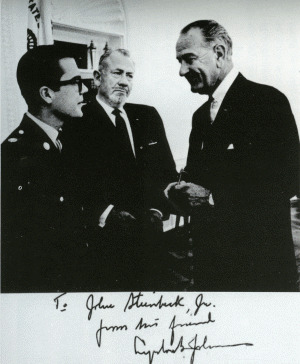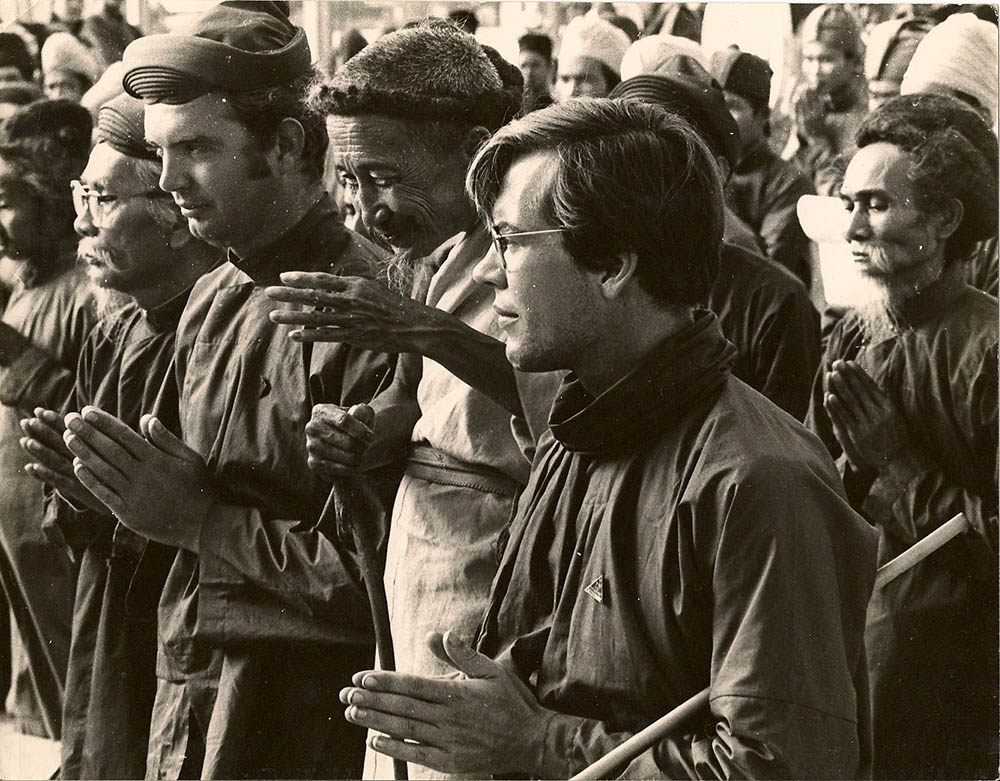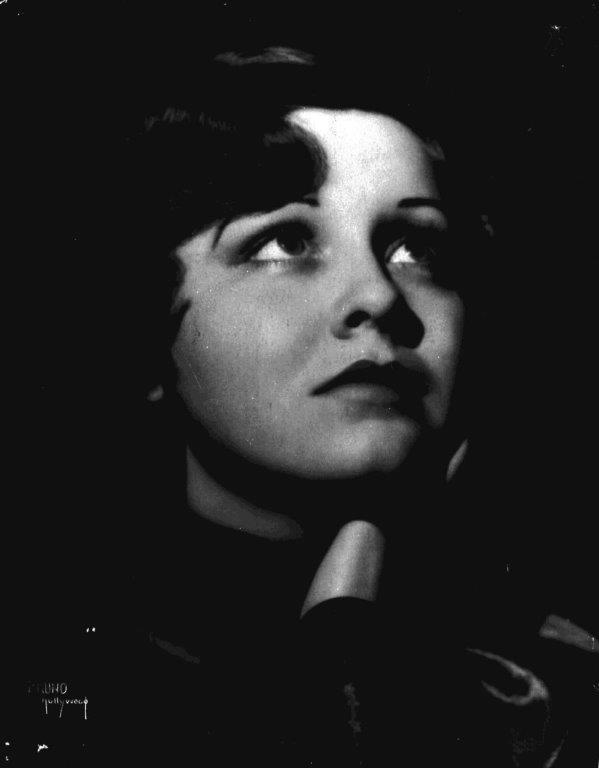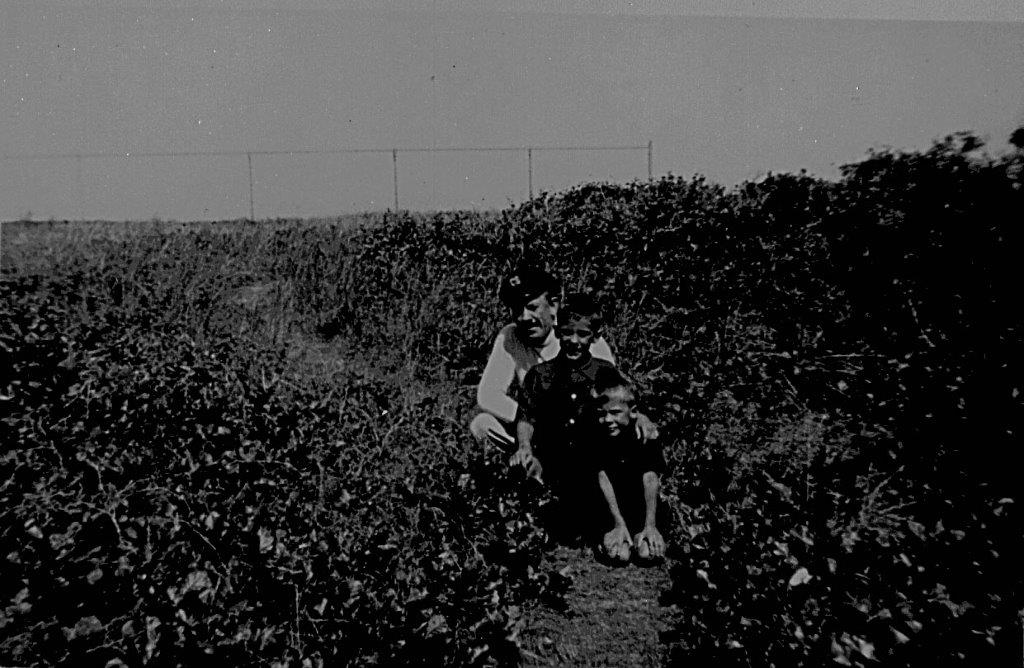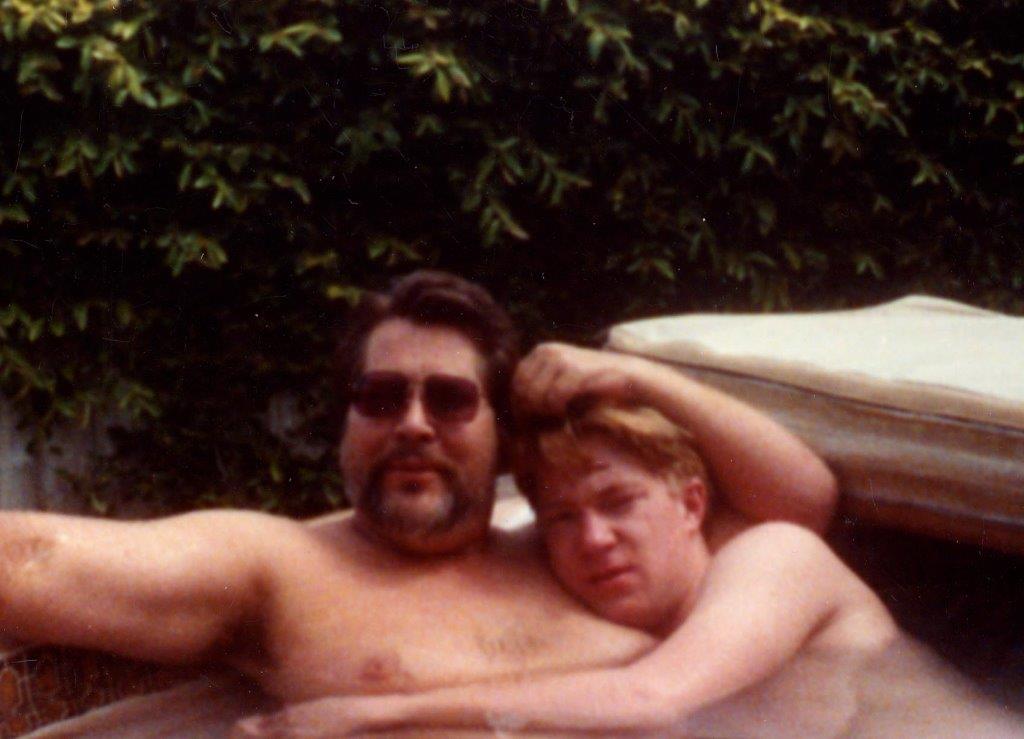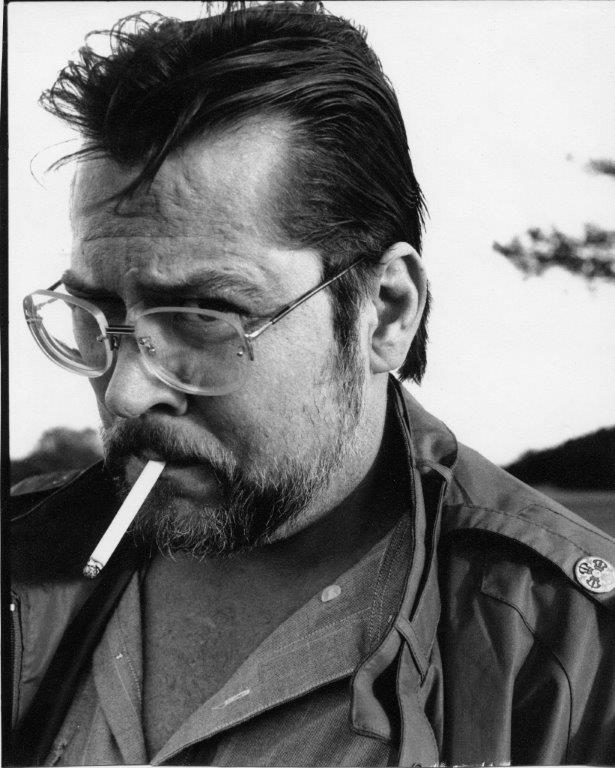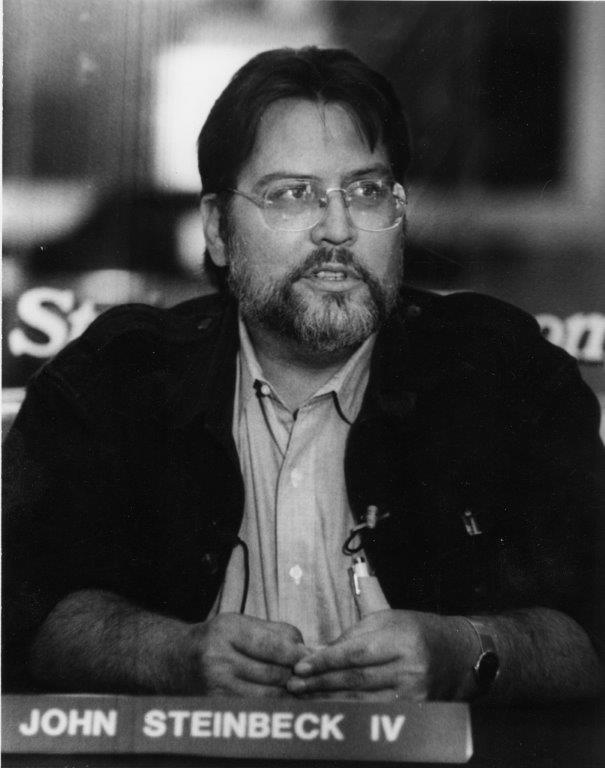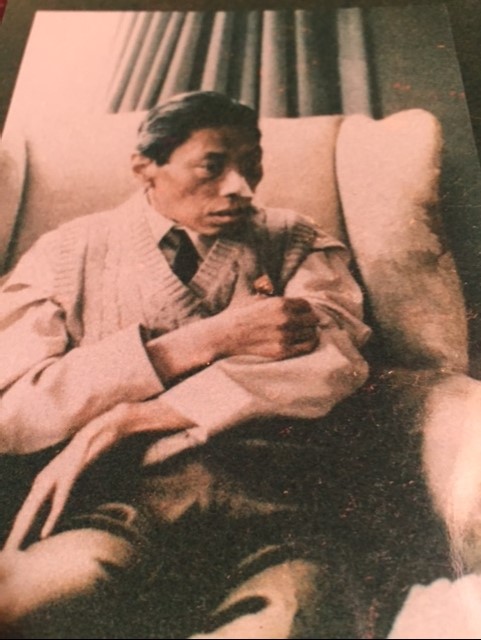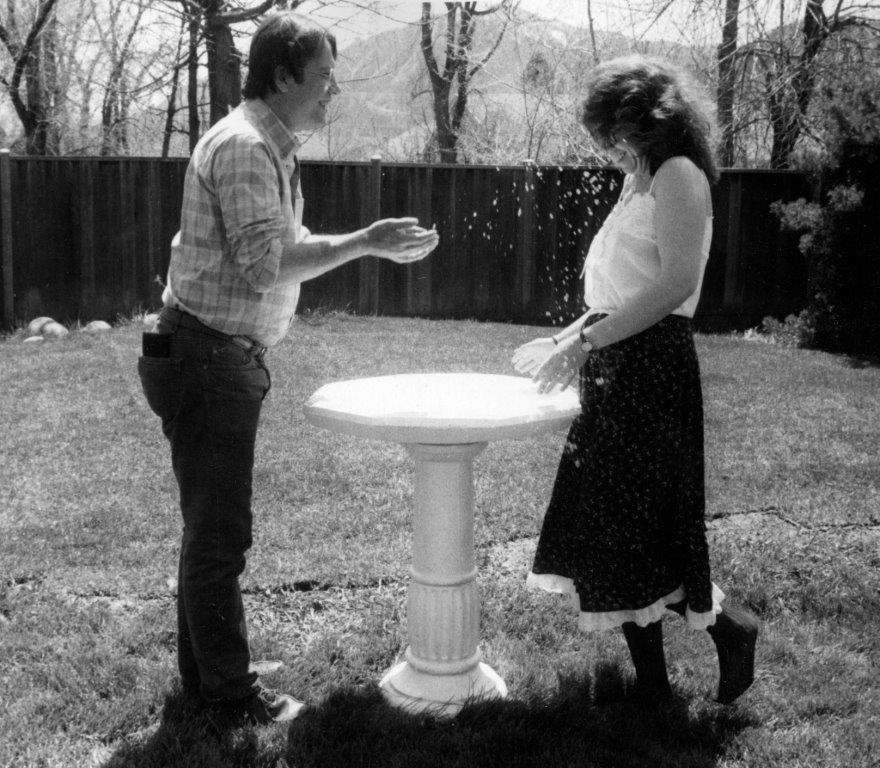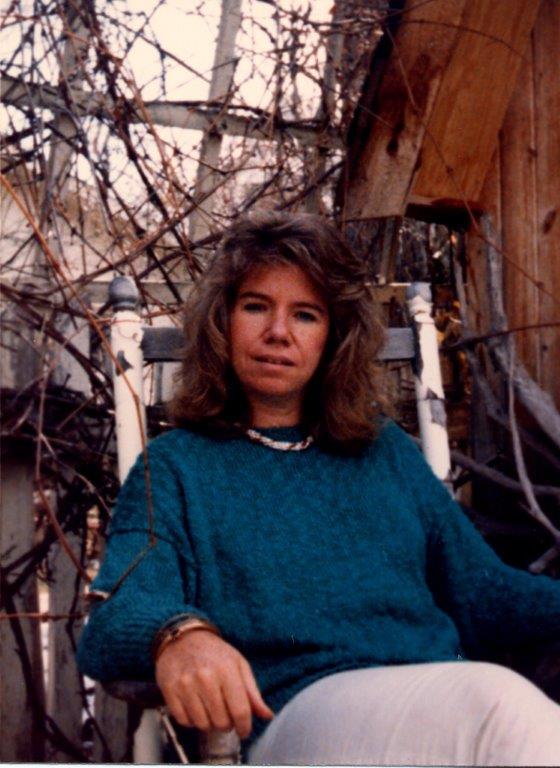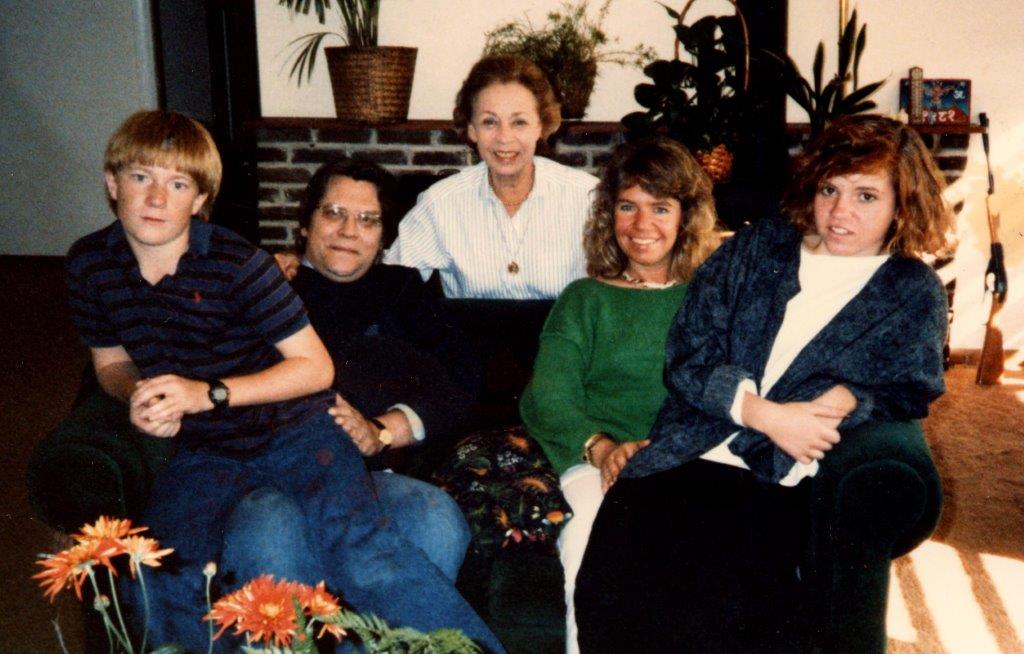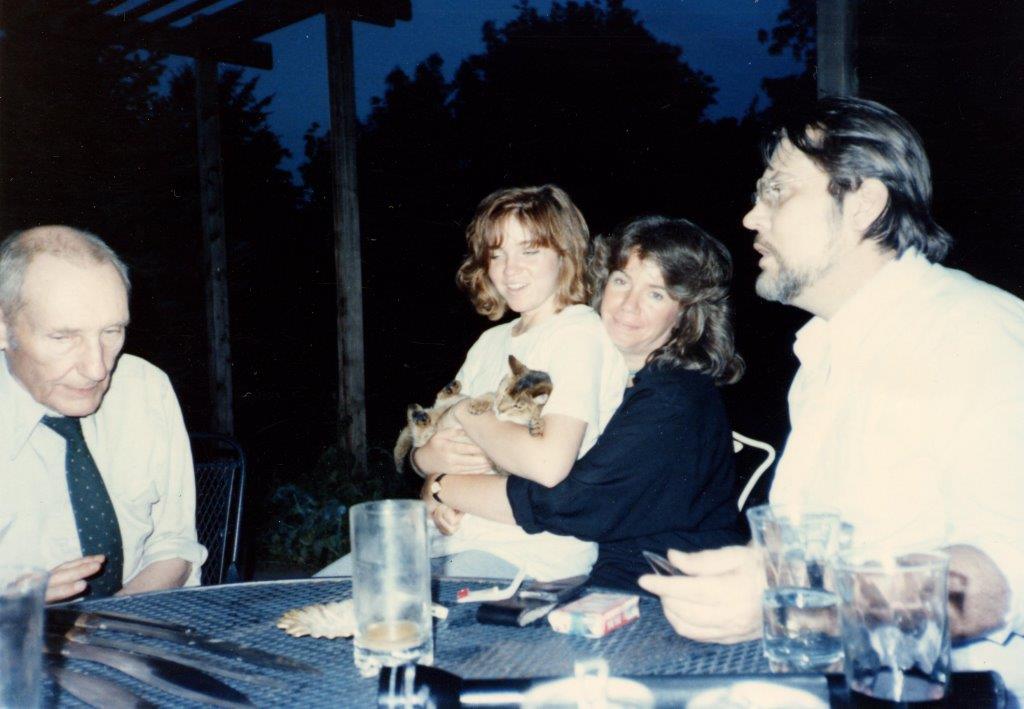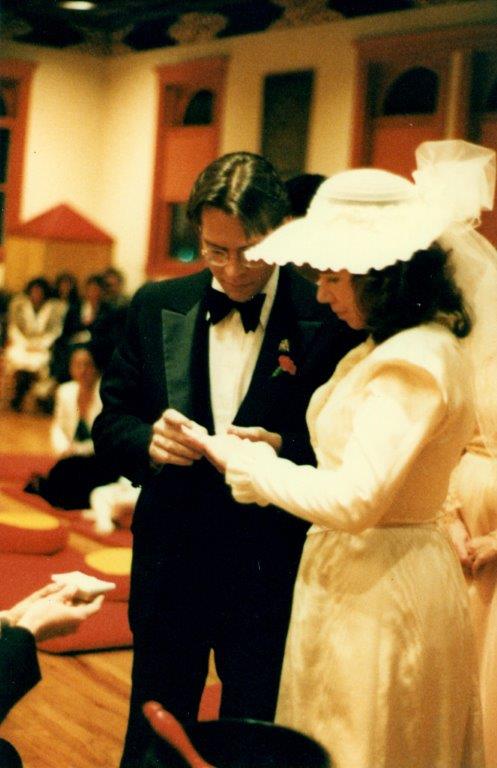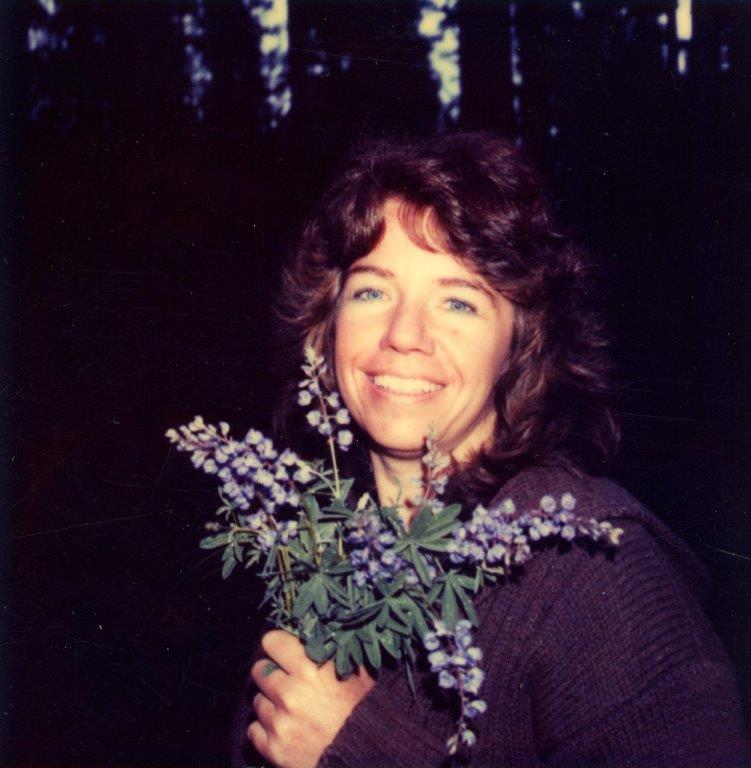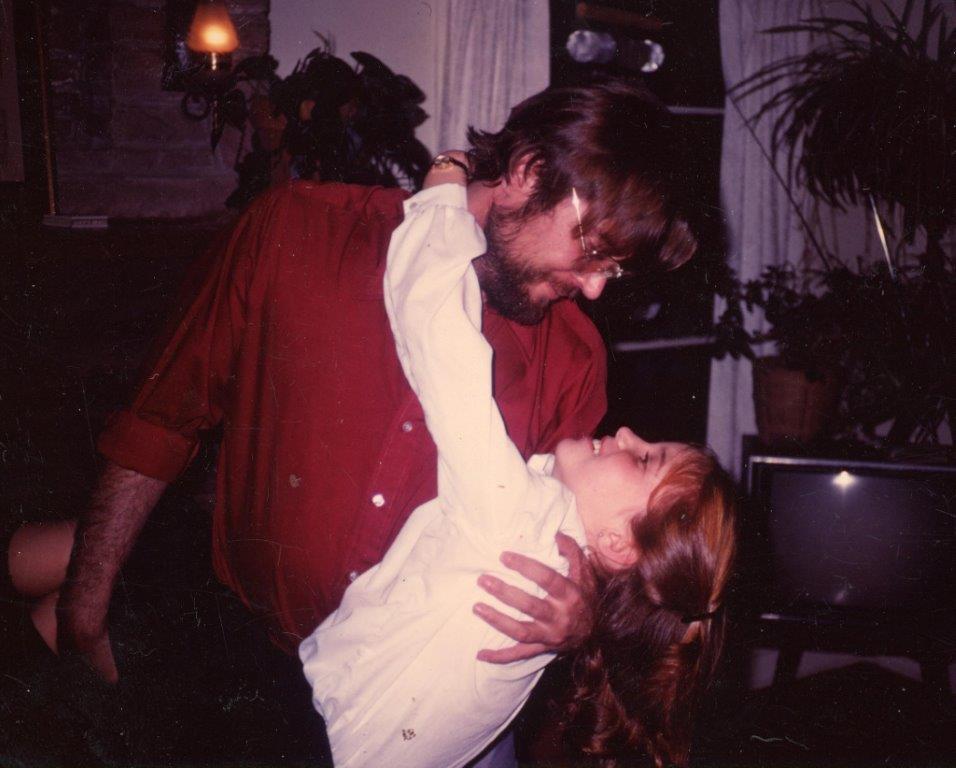John Steinbeck IV
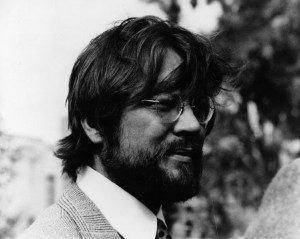
John Steinbeck IV at The Steinbeck Library
John Steinbeck IV was born on June 12, 1945, in New York City. Although he was the younger of Steinbeck’s two sons, he was his namesake.
In 1965, John was drafted into the Vietnam war where he served as a communications specialist for Armed Forces Radio and TV. Upon his return to the United States, prior to his discharge, he was asked by the Washingtonian to write an article which he titled The Importance of Being Stoned in Vietnam. He was called to testify in front of a Senate Subcommittee on drug abuse by American troops. Despite General William Westmoreland’s statement that “Private John Steinbeck’s comments on the use of marijuana in Vietnam were baseless”, John received an honorary discharge.
In 1968, John returned to Vietnam as a journalist. Along with Sean Flynn, son of actor Errol Flynn, he started Dispatch News Service. Fluent in street Vietnamese, they quickly became independent of the flow of information dispensed by the United States Press Office. Hence, they were the first to disclose the truth about the My Lai massacre and the Con Son Tiger cages. While Sean was in Cambodia on a photo shoot, he was taken as a POW and never seen again. John’s Vietnam memoir In Touch was published by Knopf in 1969. He wrote about his experiences with the Vietnamese, the GI’s and his romantic interlude with that exotic culture. John took the vows of a Buddhist monk while living on Phoenix Island in the middle of the Mekong delta, under the tutelage of the politically powerful Coconut Monk, a silent tree-dwelling Buddhist yogi.
In 1975, John and Nancy met in Boulder, Colorado, while studying Tibetan Buddhism with the notorious renegade lama, Chogyam Trungpa Rinpoche. In their memoir, they write about the process of making a moral decision to leave the cult of Shambhala, after spending 15 years in the organization. The Other Side of Eden is now recognized as a pioneering effort to awaken cult-members with the truth about the debauchery, pedophilia and criminal activity that has run rampant in Trungpa’s organization for the past 50 years.
John’s quest for sobriety runs counterpoint through their experiences with Trungpa’s deadly alcoholism and cocaine abuse. At the time of his death from back surgery in 1991, John had enjoyed three victorious years of sobriety. Nancy finished the memoir he started in 1990, combining the story of their life together with John’s autobiographical chapters.
Nancy Steinbeck
Nancy Steinbeck was a musical child prodigy, but decided to pursue a career in writing and social work. A graduate of San Francisco’s prestigious Lowell High School, she received her BA from the University of California at Berkeley during the Free Speech Movement. She shares a unique history with a small group of San Francisco teenagers as being one of the original Haight-Ashbury hippies. Nancy spent a decade traveling around the world and living abroad, in Kathmandu, on a commune in British Columbia and in a remote mountain village in Mexico. She has worked as a counselor with hard core delinquents at the San Francisco Juvenile Hall and drug addicts at Scripps McDonald Center in La Jolla, California. She and John spent twelve years engaged in the study and practice of Tibetan Buddhism with Chogyam Trungpa Rinpoche in Boulder, Colorado. Upon John’s untimely death, Nancy moved to a remote area of the Ozark Mountains, where she works as a consultant for anti-cult groups that expose illegal activity.
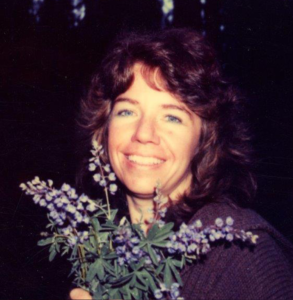
Nancy Steinbeck in Yellowstone, 1982
